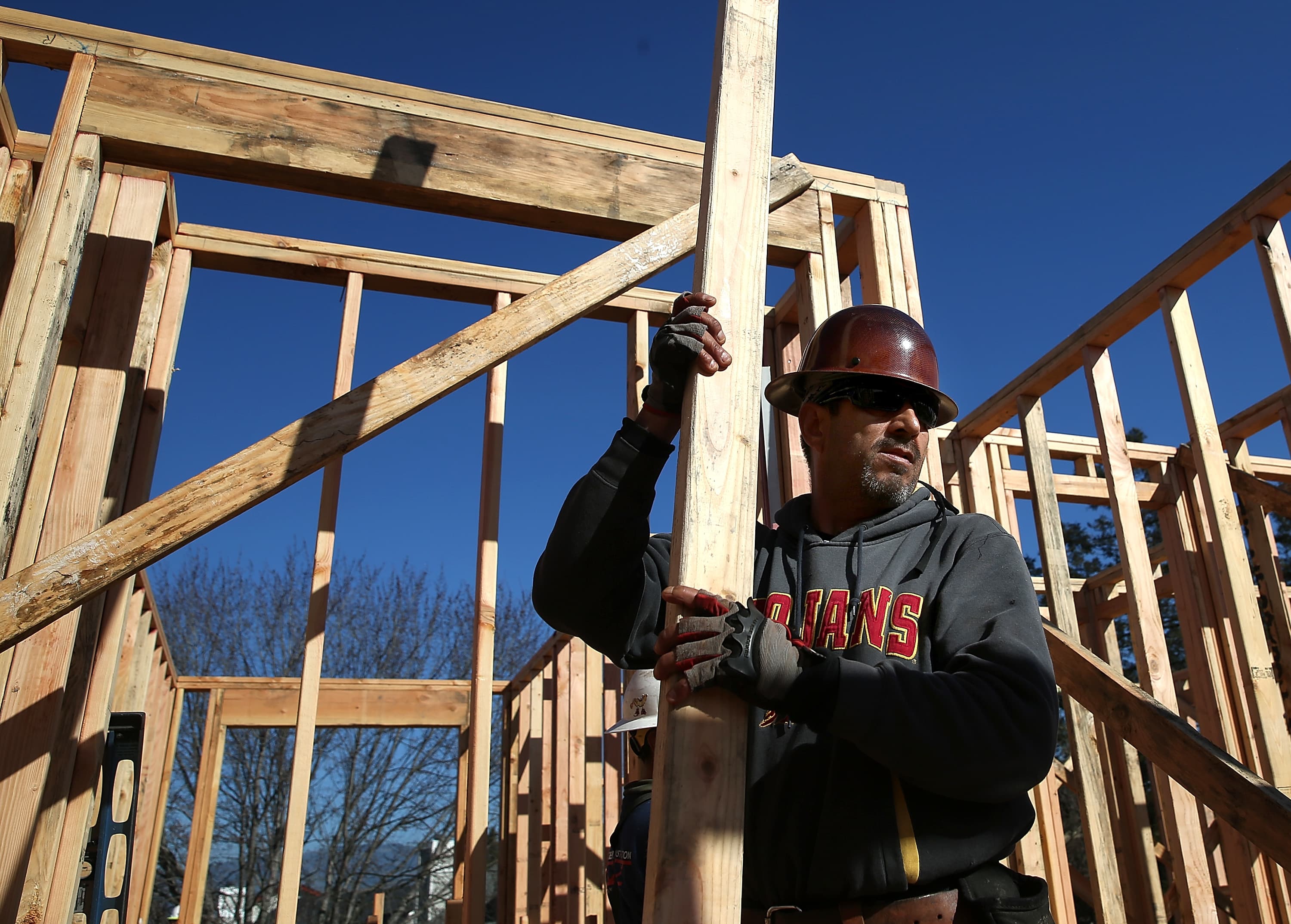
A worker carries lumber as he builds a new home in Petaluma, California.
Getty Images
Rising interest rates will result in a sharp drop in refinance demand in 2022, meaning a lot less business for mortgage bankers, according to the Mortgage Bankers Association’s just-released annual forecast. It predicts total origination volume will drop 33% to $2.59 trillion.
The average rate on the popular 30-year fixed loan will rise to 4%, a full percentage point higher than it is now, MBA economists say.
That will result in a 62% drop in refinance originations to just $860 billion. It deepens the anticipated 14% decline in 2021 to $2.26 trillion
“The economy and labor market rebounded in 2021, but overall growth fell short of expectations because of stubborn supply chain issues that fueled faster inflation, slowed consumer spending, and presented challenges in filling the record number of job openings available,” said Michael Fratantoni, MBA’s chief economist. “With inflation elevated and the unemployment rate dropping fast, the Federal Reserve will begin to taper its asset purchases by the end of this year and will raise short-term rates by the end of 2022.”
Originations for the purpose of buying a home, however, are forecast to rise 9% to a new record of $1.73 trillion in 2022.
Overall, this will mark a change from the record-high production profits of 2020, when interest rates dropped to record lows and homebuyer demand soared due to the pandemic. The drop will likely result in increased competition among lenders.
“Many lenders will rely more heavily on their servicing business to achieve financial goals,” said Marina Walsh, MBA’s vice president of industry analysis. “The servicing outlook is more complicated today, with the expiration of many COVID-19-related forbearances and the need to place borrowers into post-forbearance workouts.”
Walsh added that servicing costs may rise as servicers work to meet the needs and requirements of borrowers, investors, and regulators.




